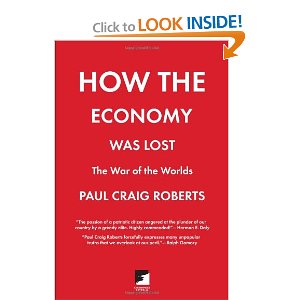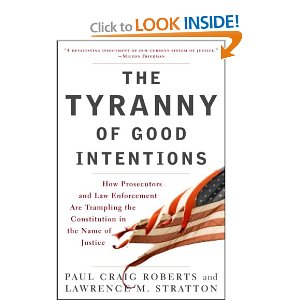
*Starred Review* Could the U.S. be on the brink of becoming a Third World nation? Syndicated columnist Huffington argues that overspending on war at the expense of domestic issues and the alarming decline of the middle class are troubling signals that the U.S. is losing its economic, political, and social stability—a stability that has always been maintained by the middle class. She pinpoints the beginning of the decline to the Reagan era, with its denigration of a government safety net. But she is nonpartisan in assigning responsibility to George W. Bush and Bill Clinton for supporting monied interests over those of the middle class; she then takes aim at Obama for expending more money to bail out Wall Street than Main Street. She also points to loss of manufacturing jobs, outsourcing, and globalization, all with emphasis on corporate profits at the expense of workers. Although the U.S. has faced similarly fearful times during the late 1800s and the Great Depression, the middle class was not threatened, as it is today. She offers possible solutions for the decline, including creating jobs to rebuild national infrastructure, reforms in home and credit lending, and tighter restrictions on Wall Street. An engaging analysis of troubling economic and political trends. HIGH-DEMAND BACKSTORY: The Huffington Post founder is sure to get some media traction with her assertion that the American Dream is an outdated concept. — Vanessa Bush

The US economy has disintegrated, and with it into the abyss plummet the blueprints of neoliberal economists, whose theories about “the free market” have now gone the way of medieval alchemy. No voice has been stronger, no prose more forceful, than that of Paul Craig Roberts in predicting collapse. His weekly columns in CounterPunch have won an audience of millions around the world, grateful for a trained economist who can explain lucidly how the well-being of the planet has been held hostage by the gangster elite. Now Dr. Roberts has written the shortest, sharpest outline of economics for the twenty-first century ever put between book covers. He traces the path to ruin and lays out the choices that must be made. There is the “empty world” of corporate exploitation, abetted by the vast majority of economists; or the “full world” of responsible management and distribution of our resources. Amid crisis, this is the guide you've been waiting for.

The authors of The New Color Line return with another libertarian polemic, this time taking aim at a justice system that has lost sight of its most important goals. Paul Craig Roberts and Lawrence M. Stratton warn of a “police state that is creeping up on us from many directions.” There's the war on drugs, which makes it possible for federal agents to investigate people simply for carrying large amounts of cash. There's the crusade against white-collar crime, which has turned the plea bargain into an enemy of the truth. And there's outright misconduct, abetted by prosecutors more interested in compiling long lists of indictments than ensuring the fair treatment of all suspects. The Tyranny of Good Intentions is replete with examples of how government treads on freedom through ill-willed prosecution and faceless bureaucracy. The book's overpowering sense of disaffection sometimes leads to alarmist prose: “We the People have vanished. Our place has been taken by wise men and anointed elites.” The authors are swift to suggest that America, barring “an intellectual rebirth,” may yet go the way of “German Nazis and Soviet communists.” Yet The Tyranny of Good Intentions is nothing if not well intended; it is full of passion and always on the attack, whether the writers are taking on racial quotas, wetland regulations, or any number of policies they find objectionable. In a jacket blurb, libertarian icon Milton Friedman calls it “a devastating indictment of our current system of justice.” Roberts and Stratton, although right-leaning in many of their political sympathies, will probably find plenty of fans on ACLU-left–and anybody who cringes at the thought of unbridled state power. If the road to hell is indeed paved with good intentions, consider this book an atlas

